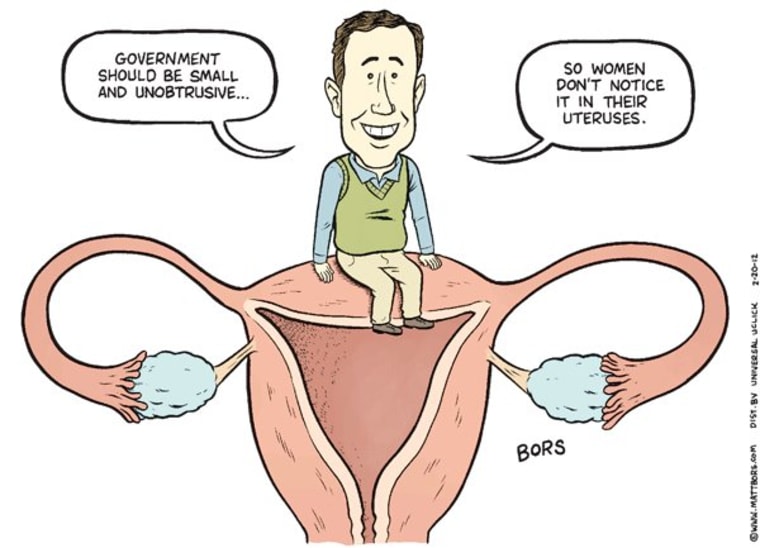A little more than one week ago, hundreds of Catholics rallied in Phoenix, Arizona to protest the Affordable Care Act. The Catholic Sun has a nice gallery of photos on Flickr, in which several placards are plainly visible in the sunshine, reading anything from "Pray to End Abortion" to "God's Will Not Obama's Will," and "Religious Freedom for All." All this about the "Obamacare" mandate (or was it Mitt Romney?) that got Republicans like Newt Gingrich all to gin up a non-existent "war on the Catholic Church," the same hubbub that consequently made Sandra Fluke famous, and lost Rush Limbaugh dozens of advertisers.
But less than a week after that protest, the Legislature in that same state passed arguably the most restrictive anti-abortion legislation we've seen since the Great Republican Takeover of 2010™. Of course, The Great Republican Overreach of 2011™ is what followed that -- and in Arizona, they're going beyond so-called "fetal pain" bills like Nebraska's, which outlaw abortions not 20 weeks into the actual pregnancy.
It seems that's soft by Arizona standards.
Last Thursday, their state House passed HB 2036, which would make abortions illegal after those 20 weeks -- but what matters most is when those 20 weeks begin. Confused, fellas? Kate Sheppard of Mother Jones breaks it down:
...reproductive rights advocates point out that Arizona's law would actually be more restrictive than others, as the bill states that the gestational age of the fetus should be "calculated from the first day of the last menstrual period of the pregnant woman..."Most women ovulate about 14 or 15 days after their period starts, and women can usually get pregnant from sexual intercourse that occurred anywhere between five days before ovulation and a day after it. Arizona's law would start the clock at a woman's last period—which means, in practice, that the law prohibits abortion later than 18 weeks after a woman actually becomes pregnant.
I've heard a pregnancy referred to as a "blessing" many times, and as a Christian, I'm not inclined to disagree. But the idea that laws like this are designed to protect such "blessings" is questionable. And I'm being kind.
Amanda Marcotte, writing in RH Reality Check today, points out what is evident with much of the Republican-led state and federal legislation we've seen just since 2010: this isn't about preventing abortion so much as it is about combining legal authority with moral, and then using both to restrict women's sex lives:
Now with this Arizona bill, if a woman is deemed pregnant two weeks before she actually is, prosecutors could even have a chance to look at your choices when you weren’t even pregnant---before you even had the sex that made you pregnant---and blame those choices for bad outcomes. They’re creating, brick by brick, the legal basis on which to prosecute a woman who drinks some alcohol, becomes pregnant two weeks later, and miscarries, even though she didn’t drink while pregnant. And you best believe that when feminists protest this, they’ll just paint it as if we’re more interested in protecting drunken sluts than “babies.”
When you ask why a party would gin up a fake federal war against Catholicism while at the same time it passes laws like this, you've likely answered your own question.
(Ed. note: the medical term "gestational age" is indeed calculated from the first day of the last menstrual period. When Sheppard and Marcotte refer to the bill making abortion illegal later than 18 weeks after a woman "actually" becomes pregnant, the moment they are referring to is after the act of conception. Whereas "fetal pain" bills like Nebraska's forbid abortions 20 weeks after conception, this Arizona bill does so 20 weeks into the gestational age. The difference was not apparent to some readers, and I apologize for the lack of clarity.)
